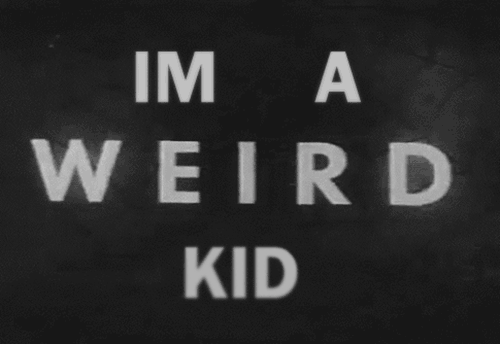
What qualifies itself as being objectively normal, and how
do scientists or psychologists quantify normality? On what basis do they determine
abnormality? Well, there isn’t a single answer to this. Apparently, there is a
bit of disagreement about this among the scientific community. In the 19th
century a Belgian mathematician named Adolphe Quetelet used a statistical tool
to find a series of ‘types’ of people. These included heart rate, blood
pressure, weight, height, etc. From these statistics he was able to create a
model of the “normal” human being based on the frequency of occurrence of
certain attributes. This neat little statistic, as a result isolated those who
did not fit the statistical model of normality. For example, if they were overweight
or had high blood pressure. While these statistics are nice, they are merely
statistics. There are many subtleties to take into consideration when trying to
define normality. For example, how can a person with several psychological
illnesses function “normally” in social settings?
I argue that normality is a culturally specific term. The culture
you live in dictates the way you define normality. If you live in a place where most people have blonde hair, blue eyes and super thin, then naturally normal
means blonde hair, blue eyes, super thin. If you have brown eyes, dark black
hair and are a bit curvy, you’d probably stand out as an abnormality. Unfortunately,
because we have an ingrained sense of “us vs. them”, we have a natural tendency
to alienate those who are different than the accepted norm. The opposite of
normal is abnormal and abnormal implies defect, rarity, or wrongness. If among
your peers or community, you exhibit a trait that makes you inherently different,
rejoice because normality is simply a social construct to help us understand
humanity. It is not a set of guidelines you should live by!
Back when I was in the hell-hole called high school, I was
surrounded by girls who wanted desperately to fit in. Naturally, being the
weirdo that I am, I gravitated towards the “outcasts” -the girls who weren’t obsessed
with who Zack is dating, what trendy clothes they should buy from Abercrombie,
or the drama between Lisa and Marissa.
We talked about stuff we cared about and even weird stuff that the other
girls scoffed at (like video game theories). We didn’t care! We even felt bad
for them! We were smart enough to understand that there was probably some kind
of pain or longing that motivated their overwhelming drive for acceptance. We
also recognized that maybe their priorities were in the wrong place or they
admired the wrong kind of person. To us we were normal and they were the freaks
who wanted to be popular.
In my case, the ‘popular’ girls used normality as a tool to
encourage superiority and hierarchy. The more ‘normal’ someone was perceived to
be by the community, the more popular they were fated to become. As long as
they embodied the kind of values, ideas, and interests as the people considered
normal, and ditched their own. That's horse-sh*t! No one can hold a claim on normality! There are too many people who think, live, dress and act differently from them for that kind of narrow minded thinking!
So moral of the story is to be whoever you are and make a point to be accepting of others for their differences. Find people
who accept you for who and what you are, and help shape you into a better
person. Of course there will always be people who will judge you for being
weird, bizarre or hard to understand. That’s a good thing. Everyone wants to be
unique, yet they don’t want to be seen as weird or too different. They still
want to be accepted by others. F*ck it! Be yourself! Accept that not everyone
is going to like you. Cultivate your unique interests, hobbies and passions to
something you love, and then the attention will follow later. And be accepting of others for their differences!
Credit: Aeon
Credit: Aeon
No comments:
Post a Comment